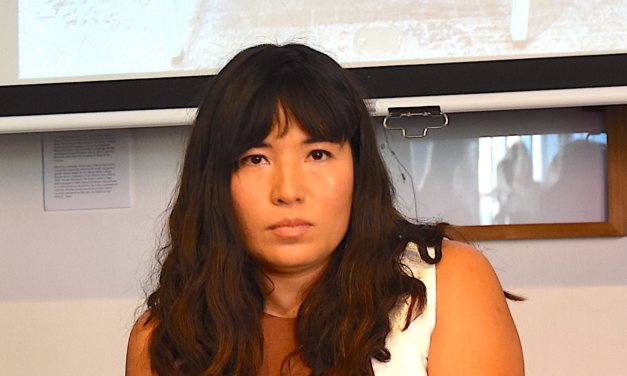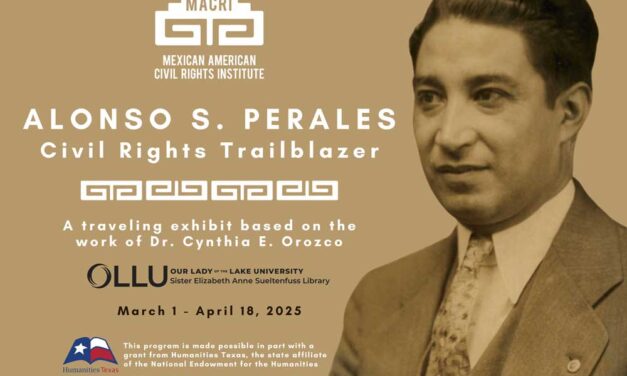For my entire life I have always heard that children are precious and should be protected by adults. This assumption was reinforced recently in the worldwide response to news that twelve young Thai boys were trapped in a dark and treacherous cave as a result of rapidly rising flood water. It took two weeks, lots of luck and resources, as well as a large team of international divers to rescue the boys. Their rescue, followed by millions across the globe, brought joy and relief. At about the same time, a Federal Judge in San Diego was issuing an order for Homeland Security (ICE) to end the separation of families who had crossed into the United States along the U.S.-Mexico border. Moreover, the judge insisted that our federal government reunite those already separated. By the time the federal courts put a stop to this draconian action, more than two thousands children had been impacted. The United Nations was among the first to condemn the Trump policy of family separation.
“The Trump administration’s practice of separating children from migrant families entering the United States violates their rights and international law,” the United Nations human rights office commented, and urged an immediate halt to the practice. Time is of essence in the reunification of children with their parents. We see daily evidence that children matter, families matter, and being with your parents is a natural and humane expectation. In a statement issued by the UN’s Human Rights Council, experts said “Detention of children is punitive, severely hampers their development, and in some cases may amount to torture.” They added that “Children are being used as a deterrent to irregular migration, which is unacceptable. “ Not surprisingly, finding the children to match them up with their parents has not been easy. The New York Times reported this week that “With less than a week left before the deadline (imposed by a Federal Judge in San Diego), just 364 of the separated children, or less than 15 percent, have been reunited with their families.” It is clear that many of the children, especially those under the age of five, will have difficulty knowing their parents full name or community of origin. And while the Foster Care programs help many children whose parents demonstrated an inability to raise their children, we cannot assume that children living with strangers who may not speak the children’s home language or children placed in a group home solves the problem.
The Foster Care system is already struggling to meet the needs of children whose parents cannot care for them. There was ample confusion on how to implement the Trump policy dealing with the separation of families. American immigration agencies have created a crisis in that they placed apprehended children under the age of five in centers as far as the state of New York. As of this week, more than seventy children under the age of five do not know where their parents are. They too are lost, and the trauma of separation is real. Some of the children were taken to refugee centers as ICE deported their parents, most often their mothers transported in planes and buses back to the homeland. This meant, of course, leaving their children in the United States. There will be serious problems in bringing children together with their parents who may be thousands of miles away. It is reasonable to expect many hardships for families separated by time and vast distances. And there is little time to lose, something that the American Civil Liberties Union argued before a Federal Judge in San Diego. Much has changed in the past decade in terms of migration from Mexico and Central America. Today’s forced displacement includes more women than men. The migration patterns have also changed. The violence occurring in Central America is forcing many families to seek asylum in the United States. In the last decade, the Pew Research Center showed that migration trends have reversed as more Mexicans leave the United States than enter. Today, Central Americans make up vast number of apprehensions by the Border Patrol and Homeland Security (ICE) officers along the 2000 mile border between Mexico and the United States. Migration is a world-wide phenomenon. It is not unique to America.
Everyday hundreds of refugees die in their attempt to seek a better life for their families. Poverty caused by drought and war in Africa sends thousand of refugees to other countries every week. While forced migration appear to be a hopeless situation with no solution in sight, it should be noted that no country other than the United States has chosen to separate families from their children. The United Nations, which tracks the migration of refugees and asylum world- wide, estimated more than 68 million people left their homeland in 2017. Thus forced displacement is a global issue. Upon learning that the Trump Administration had adopted a separation of families policy, the head of the United Nations Human Rights Council stated that “Children should never be detained for reasons related to their own or their parents’ migration status. Detention is never in the best interests of the child and always constitutes a child rights violation. The UN Council called on the authorities to adopt noncustodial alternatives. Migration is a complex phenomena and many policies have been tried. However, the American separation policy appears to have been a horrible mistake. America should be and can be a model for humane migration policies and practices. The United States can also demonstrate how to treat people from neighboring countries, who are our closest allies.
Latina/o Artists Draw Inspiration from Central American and Mexican Mayan Communities
Facebook Twitter Google+ Gmail Print Friendly Like 0 A Spring 2025 Artpace Opening Reception &...
Read MoreSelena y Los Dinos at SXSW
Facebook Twitter Google+ Gmail Print Friendly Like 0 Selena Quintanilla was more than a musician;...
Read MoreLatina Lina González-Granados: A Music Prodigy Performs in San Antonio
Facebook Twitter Google+ Gmail Print Friendly Like 0 A front page Arts story in The New York Times...
Read MoreLatina Women’s Art at the Forefront at Mujeres de Aztlán Exhibition.
Facebook Twitter Google+ Gmail Print Friendly Like 0 The 16th Annual Mujeres de Aztlán Exhibition,...
Read MoreAlonso S. Perales Exhibit & Keynote Address by Author Cynthia E. Orozco, March 20th, 6pm at The Sueltenfuss Library, OLLU
Facebook Twitter Google+ Gmail Print Friendly Like 0 Courtesy of Karen Carr The Sister Elizabeth...
Read More










